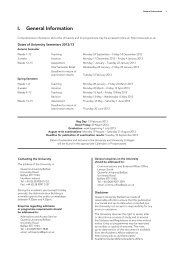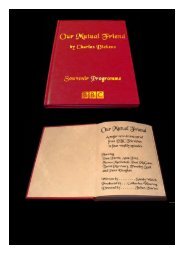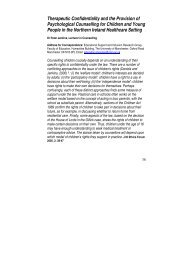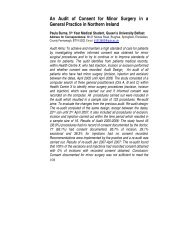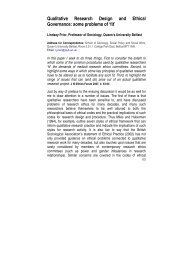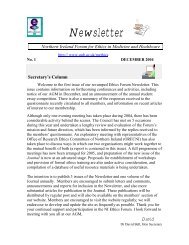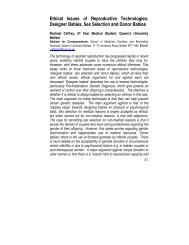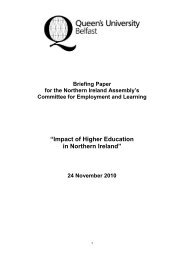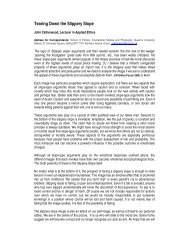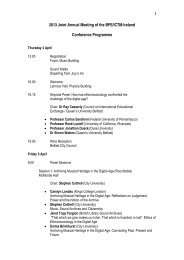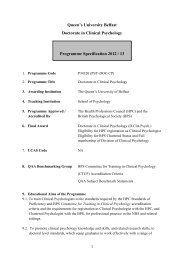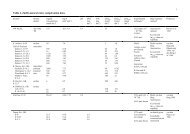Media, Politics & Conflict - Queen's University Belfast
Media, Politics & Conflict - Queen's University Belfast
Media, Politics & Conflict - Queen's University Belfast
You also want an ePaper? Increase the reach of your titles
YUMPU automatically turns print PDFs into web optimized ePapers that Google loves.
MODULE DESCRIPTION<br />
The module examines the nature of politics and conflict in media driven culture. It explores<br />
the relationship between media and democracy in times of war, and asks questions about<br />
bias, agenda setting, power and control in the media. It covers both local and global politics,<br />
and provides the historical context for significant technological developments (e.g. the<br />
internet) and contemporary examples of the growing power of the media (e.g. the CNN<br />
Effect). The module asks students to reflect on their own interactions with the media, think<br />
about media production from different and competing positions, and to compare different<br />
media formats.<br />
The module places a particular emphasis on the relationship between the media and conflict.<br />
It looks at how the media portray and represent conflict, and the relationship between the<br />
media, the military, the government and the audience. It examines some of the ways in<br />
which the media can significantly escalate conflict and impact upon its development, and<br />
pays particular attention to the role of new technologies in the mediation of conflict. To<br />
explore these issues, a series of historical and contemporary case studies will be used,<br />
including Vietnam, The Gulf War, Northern Ireland, Iraq, and the Arab Spring. These case<br />
studies highlight a number of critical themes which will be discussed during the module, such<br />
as the neutrality and independence of the media, Marxist and Pluralist approaches to the<br />
media, the media as a weapon of war and the ethics of war reporting.<br />
This module provides a basic understanding of the relationship between contemporary media<br />
and politics with a specific focus on the media’s role during times of war. Rather than seeing<br />
the media as something separate from the operation of politics, conflict and war, this module<br />
examines the connections between modern forms of structural power, the current condition<br />
of media saturation, and episodes of violent conflict. In other words, the module looks<br />
beyond the direct media coverage of politics and asks bigger questions about how the media<br />
shapes our social, cultural and political attitudes to conflict.<br />
MODULE AIMS:<br />
To give students a basic understanding of the relationships between contemporary<br />
politics, the mass media and historical and contemporary episodes of conflict<br />
To introduce students to the major debates in media studies<br />
To help students understand the relationship between the media, politics and conflict<br />
through clear and contemporary examples<br />
To give students an opportunity to develop their communication skills by discussing and<br />
debating these issues in tutorial groups<br />
To give students the opportunity to develop their analytical and literary skills by exploring<br />
these issues in written assignments and examinations<br />
LEARNING OUTCOMES:<br />
Upon completion of this module, students should be able to:<br />
Explain the role of the mass media during times of war with reference to issues such as<br />
power, bias, neutrality, agenda setting and the public sphere<br />
Reproduce some of the basic themes, topics and arguments in media studies such as the<br />
politics of representation, mediation, Pluralist vs. Marxist approaches and new media<br />
technologies<br />
Draw upon the various case studies covered in the module to support or challenge a<br />
particular argument<br />
PAI1005 <strong>Media</strong>, <strong>Politics</strong> 7 <strong>Conflict</strong> (2012-13) 2



